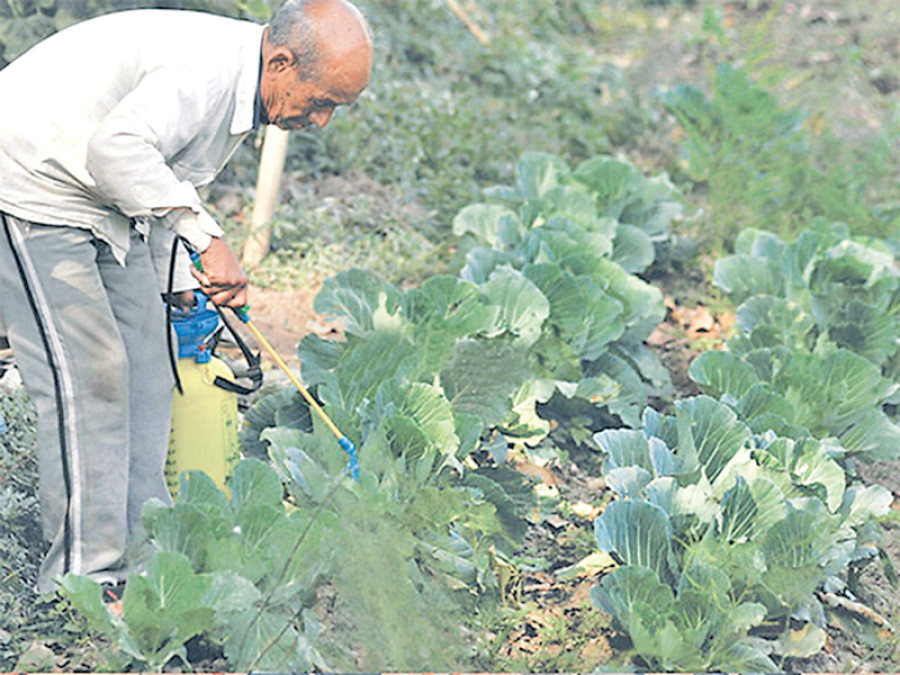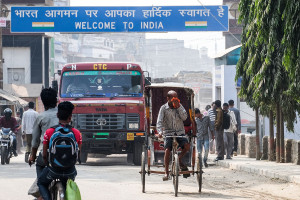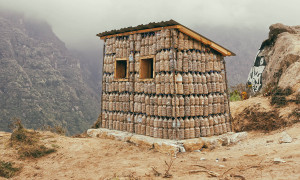Money
6 more pesticide testing labs to be established
The government plans to establish labs to test the level of chemical inputs in vegetables at another six locations across the country in a bid to control rampant use of possibly harmful pesticides.
The government plans to establish labs to test the level of chemical inputs in vegetables at another six locations across the country in a bid to control rampant use of possibly harmful pesticides.
Encouraged by the effectiveness of the test centre set up at the Kalimati Fruits and Vegetables Market in Kathmandu, the Ministry of Agricultural Development has decided to extend monitoring to other parts of the country.
According to the ministry’s Plant Protection Directorate (PPD), the proposed locations are Jhapa, Sarlahi, Butwal, Pokhara, Banke and Kailali. The labs are expected to be up and running by the end of the fiscal year.
“The labs will be set up at the main vegetable markets in these places,” said Rajiv Das Rajbhandari, senior plant protection officer at the directorate, speaking at a programme on Tuesday.
The government set up the Rapid Pesticide Residue Analysis Laboratory at the Kalimati market, the largest wholesale bazaar in the Kathmandu Valley, two years ago. Apart from testing for chemicals in fruits and vegetables being sold in the valley, the lab has been helpful in spreading awareness among farmers about the harmful effects of pesticides on public health.
Ministry records show
that there has been a
significant fall in the use of chemicals in the farm produce sold at the Kalimati market after the testing lab started operating.
According to the Agriculture Ministry, 51 out of the 1,619 vegetable samples tested in 2014-15 were found to contain excess levels of chemicals beyond safe levels. Subsequently, the authorities destroyed 30 lots of vegetables for being unfit for
consumption.
The number of tainted samples were lower last year; only eight out of the 1,936 samples tested were found to contain harmful levels of chemicals. Following the lab report, four batches of vegetables were destroyed in 2015-16.
Imports of farm chemicals have been swelling by the year in Nepal. According to the PPD, 455 tonnes of pesticides valued at Rs550 million entered the country in fiscal 2013-14, a sharp rise from 345 tonnes worth Rs380 million in 2012-13.
The PPD said 85 percent of the chemicals were applied to vegetable crops as they provide quick and handsome returns compared to other crops.
The consumption of chemical-contaminated vegetables poses a higher risk to public health compared to other food crops, Rajbhandari said. “As farm products cannot be stored for a long time and some of them are consumed without being properly cooked, this creates a serious threat to consumer health,” he added.
Expert Bhupendra Devkota stressed the need for prudent use of chemicals in the production and storage of farm products. “Towards this end, an awareness campaign should be conducted on an institutional basis,” he said.
According to the PPD, the use of farm chemicals is low in the high hilly region compared to the Kathmandu Valley and the Tarai. Among the five development regions, farms in the Eastern and Mid-Western regions are more exposed to chemicals.




 11.12°C Kathmandu
11.12°C Kathmandu













